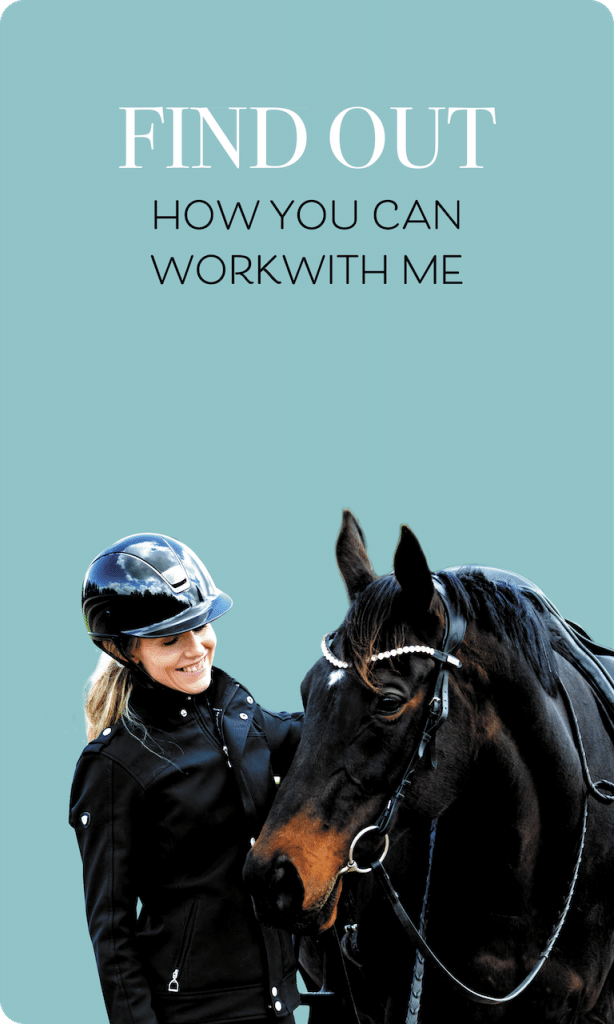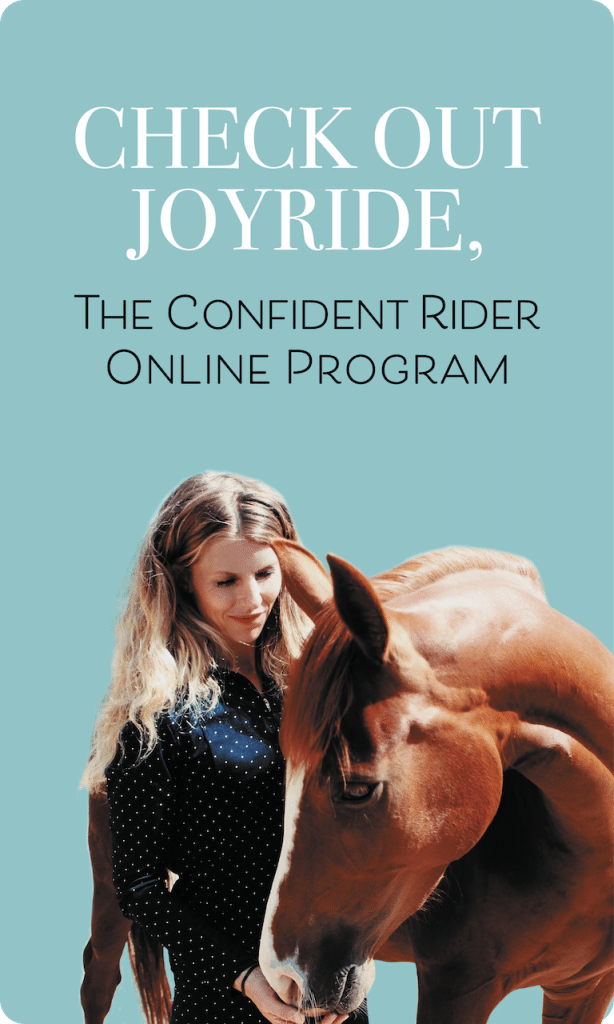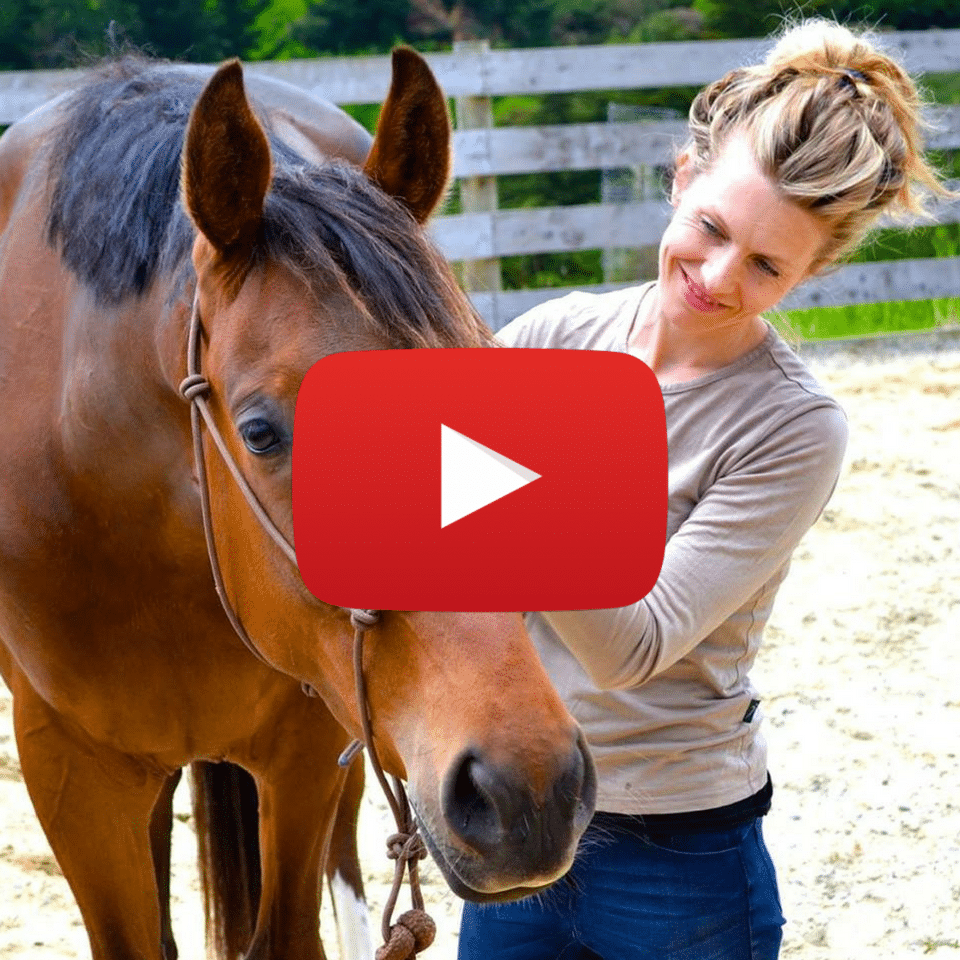In many ways, the world has cracked open with the discussion of trauma. It’s facilitated a greater degree of empathy and understanding; it’s allowed many people to feel validated in their experience; it’s allowed people to gain knowledge and self-awareness of how different situations in the past might be affecting them now. All of those things.
I spend a large part of my day navigating, discussing, and exploring various traumas that people present. They can have everything to do with horses or they can have nothing to do with horses. The longer that I spend in this work, the more I see that horses in many cases give us permission to explore the parts of ourselves that we would, perhaps, leave in the shadows without them.
My inbox floods with stories of childhood abuse; of accidents that have divided lives into before and after stories; of hidden secrets that people feel embarrassed to share and yet that lies with an equal and opposite pressure that if they don’t share it with someone, they might just split in two.
I too have my own experiences with challenge and hardship. Serious, life-threatening mental health issues are a part of my family tree. I have lived in psychiatric wards as a support person for a loved one for so long that people began to get confused as to which one of us was actually the patient. I have watched someone slip over the edge to insanity and held their hand while it happened, in the hope that my grip would be what enabled them to come back.
Ironically, my intimacy with what we might describe as trauma has enabled me to understand it more completely, and as a consequence, hold it with a certain lightness. The beauty of the situation is that there is no situation, no matter how dire, that is inherently traumatic. There are certain situations that increase the likelihood of something being traumatic, but still, it remains that nothing is inherently so. I looked up the definition of trauma, thinking it would be useful to contextualise it for the purposes of this writing. The Healthline definition is:
“A traumatic event is an incident that causes physical, emotional, spiritual, or psychological harm. The person experiencing the distressing event may feel physically threatened or extremely frightened as a result.”
Personally, I define it differently. To me, trauma is an incident that causes physical, emotional, spiritual, or psychological harm, and that harm continues to be felt after the cause itself is no longer present.
Trauma, to me, is when we carry the imprint of an experience forward to our present day, and consequently, the story that we attach to it becomes more important to us than the current moment that we find ourselves in (a choice that is not a conscious one).
What I’m interested in discussing then is the cultural and social narrative that we are developing around the use of the word “trauma”, and how that might keep us stuck in the cycles that we are looking to liberate ourselves from. Our trauma stories evolve from a couple of different sources:
- An expectation of a predictable response in line with an occurrence or event
- The meaning that we attach to the situation, especially as it relates to possibilities for the future
A rather low-key example for you.
My little boy broke his arm last week in rather dramatic fashion. The story of how it happened had a few compelling elements that allowed it to sit outside the norm, and consequently the people I told had heightened responses to the story. Being in the field of work that I’m in, I mentally took note of the comments which included variations of:
- Gosh, that’s traumatic. It’s going to take him a while to get over that
- Oh no! He’ll have trouble with that arm for ages! That’s no good!
- Aargh! No more climbing for him! (He’s a climbing addict that basically lives and breathes to climb)
As a child, he is generally filtered from this feedback (by me). And as a consequence, he doesn’t absorb the stories that are not his own around what the injury might mean and the consequences for the future. As a result, he meets the moment as it presents, without a preconceived expectation of how that might look or where that might take him.
As adults, we are often not privy to that same protection. We have a situation and people share their unfiltered opinions about what that means and the recovery time. And so, we create our own stories, our own narratives around the experience until the story becomes more pervasive and damaging than the situation itself ever was.
So while the use of the word “trauma” has been liberating and enlightening for many, we also need to take care that we don’t turn it on its head and load up the same word with a preconceived story and set of expectations.
In my work and life now, I understand trauma in terms of patterns. In certain situations- which can be very specific or much more pervasive- we have developed a dominant pattern, and dominant expression, in situations that we have unconsciously linked to the initial event (or trauma). These patterns are products of our sympathetic nervous system and operate reflexively, and depending on how adaptable our nervous system is overall, they can be challenging (but not impossible) to replace.
Our patterns are reinforced by our stories, and our cultural and familial stories around pain, discomfort and trauma more often than not inform the trajectory of how they play out. Meeting the reality of the moment means disconnecting from any thoughts about how or what this means and simply doing what is needed in the moment to address what presents. A simple thing that is usually the hardest.
No situation is inherently traumatic. No circumstance, no matter how challenging, is fixed.
And what’s more, we don’t need to create a new story. We don’t need to overlay a less productive story with one we understand to be more positive or beneficial.
We just need to stop making the story- regardless of whether we see that story as positive or negative- more important than the moment.
Onwards.
❤️ Jane





